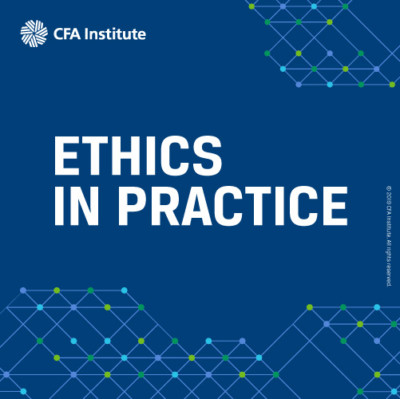Ethics in Practice: Custody Expenses. Case and Analysis–Week of 15 July
Check the analysis of this week’s case (15 July) to see if you made the right choice.
Case
Slate Brothers Bank (SBS) serves as a custody bank for a wide range of clients, including many registered investment companies. SBS offers a variety of services to its custody clients, including custody, clearing, payment, settlement, and record-keeping functions. SBS charges custody clients an asset-based fee for these services. Pursuant to the bank’s client agreement, custody clients also agree to reimburse the bank for out-of-pocket (OOP) expenses for items paid by the custodian on behalf of the investor. The bulk of these expenses are related to Society of Worldwide Interbank Financial Telecommunication (SWIFT) messages, a secured messaging network used by banks and other financial institutions.
Although SBS charges custody clients an established rate for SWIFT messages, the rate is greater than the actual cost of providing this service. Mandracken, a vice president at SBS who oversees client services’ responsibilities for the custody clients, recognizes this discrepancy and brings it to the attention of his supervisor. In an email, Mandracken states that “although SWIFT resides in the OOP language of most client fee schedules, the fees have always include an increase over true costs so that the SWIFT fee is not a true pass-through to the client because we tack on a margin.” Mandracken’s supervisor directs him to reduce the SWIFT rate for new custody clients and to revisit the rate for existing custody clients during contract renegotiations. To be consistent with his obligations under the CFA Institute Code of Ethics and Standards of Professional Conduct (Code and Standards), Mandracken should
- comply with his duty of loyalty to his employer and implement the corrective procedures as directed by his supervisor.
- implement the corrective procedures as directed by his supervisor but report any objections to the bank’s board of directors.
- refuse to participate in any interactions with clients utilizing the fee schedule until the bank revises the SWIFT rate charged to all custody clients to reflect actual O0P costs.
- report SBS’s client billing practices to the bank’s regulator.
- none of the above.
Analysis
This case involves how to appropriately and effectively address the misconduct of others in carrying out your professional responsibilities. CFA Institute Standard I(A): Knowledge of the Law prohibits CFA Institute members from knowingly participating or assisting in legal or ethical violations and requires them to dissociate from any such activity. In this case, because the SWIFT rate the bank charges to clients does not represent true OOP expenses, SBS is misrepresenting its reimbursable expenses to its custody clients, leading to significant overcharges. Mandracken recognizes this issue and brings it to the attention of his supervisor in an attempt to rectify the misconduct. His supervisor directs him to undertake corrective measures that are inadequate because they address the issue only for new clients going forward, do not immediately address the issue for current clients, and do not address the historical misrepresentation and overcharges to clients in the past.
Under the Code and Standards, Mandracken cannot continue to participate in or be associated with this misconduct. Inaction combined with continuing association with those involved in illegal or unethical conduct may be construed as participation or assistance in the illegal or unethical conduct. Ultimately, Mandracken may have to take drastic measures to dissociate from the activity and to protect client interests by leaving the bank or by reporting the misconduct to the bank’s Board of Directors or regulators. Several interim steps should be considered, however, such as bringing the inadequacy of the proposed remedial action to the attention of his supervisor or the bank’s compliance department to develop an effective method for addressing this misconduct. In any case, Mandracken cannot continue to interact with clients using a fraudulent fee schedule.
The actions stated in C represent the minimum level of conduct. Thus, choice C is the best response. Any additional actions potentially considered and set forth under choice E that would also address client reimbursement for the past misconduct would have to also include the measures listed in choice C.
This case is based on June 2019 US SEC Enforcement Action.
Let us know what you think of Ethics in Practice by taking this short survey.
Have an idea for a case for us to feature? Send it to us at [email protected].
More About the Ethics in Practice Series
Just as you need to practice to become proficient at playing a musical instrument, public speaking, or playing a sport, practicing assessing and analyzing situations and making ethical decisions develops your ethical decision-making skills. The Ethics in Practice series gives you an opportunity to “exercise” your ethical decision-making skills. Each week, we post a short vignette, drawn from real-world circumstances, regulatory cases, and CFA Institute Professional Conduct investigations, along with possible responses/actions. We then encourage you to assess the case using the CFA Institute Ethical Decision-Making Framework and through the lens of the CFA Institute Code of Ethics and Standards of Professional Conduct. Then join the conversation and let us know which of the choices you believe is the right one and explain why. Later in the week, we will post an analysis of the case and you can see how your response compares.
Image Credit: ©CFA Institute


Choice C
Option C